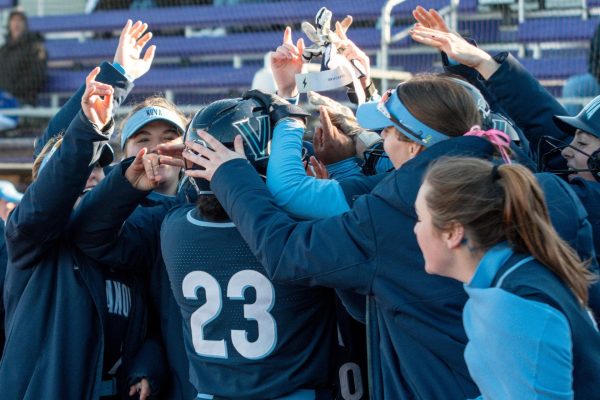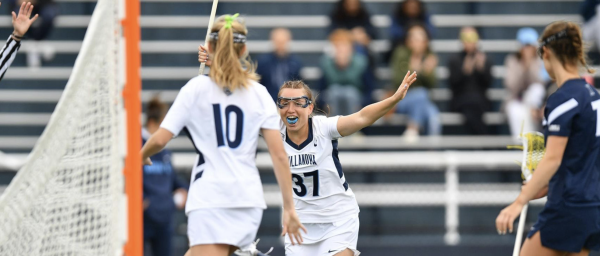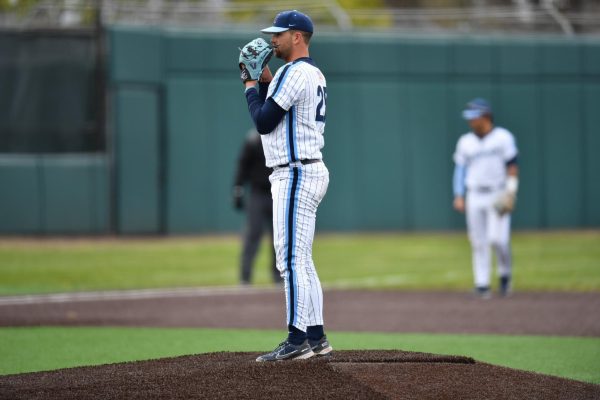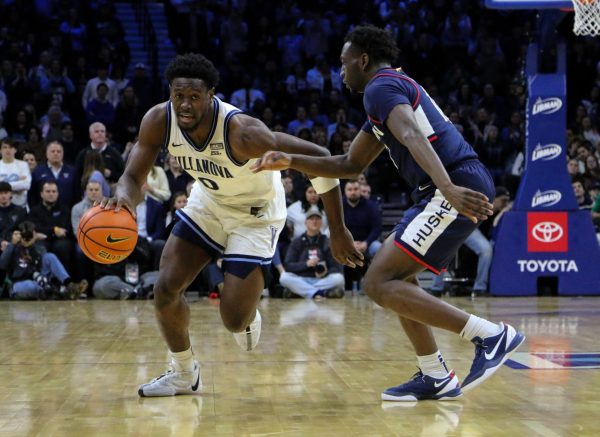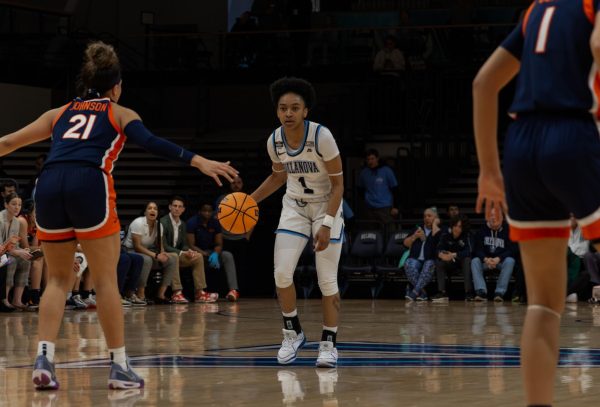Derek Jeter: Remembering the Captain
October 2, 2014
My first memory happened in a doctor’s office. Everyone has that one moment from childhood that, for whatever reason, sticks with them forever. Mine happened in a doctor’s office. I was there with my mom and my sister. I forget why exactly we were there, but my dad eventually came to meet up with us, and he asked me if I wanted to go to the Yankee game that night.
Maybe my sister was sick, maybe my grandmother, who would usually watch us when our parents were out, was busy or maybe my mom just didn’t feel like being out late that night.
Whatever the reason was, I was going to the game. I don’t remember a thing from the game other than that they were playing the Indians in the playoffs, whatever that means.
What I do remember is the feeling I felt standing in the doctor’s office and finding out I was going to the Yankee game, on a school night no less, with my dad.
In later years, I found out that the game I went to took place on Oct. 6, 1998. It was Game One of the ALCS and the Yankees won by a score of 7-2. What that game is known for, however, is a play Derek Jeter made in the top of the fourth.
With two outs and nobody on, the Indians’ Travis Fryman hit a groundball deep in the hole between the shortstop and the third baseman. Off the bat, it looked like it would have been a clear base hit. Even if one of the Yankees got to the ball, there was no way they would have been able to throw it to first in time to get Fryman out.
Derek Jeter, the Yankees shortstop in his third full year in the major leagues and on his way to stardom, then performed one of the many defining plays of his career.
Moving to his right, he backhanded the ball, and in one stunning motion of strength and athleticism, jumped and threw across his body to first base to beat Fryman.
The Yankees would go on to win that series against the Indians and eventually sweep the San Diego Padres in the World Series, winning their second title in three years and kicking off a string of three in a row that they would go on to capture.
Derek Jeter went on to play a major part in all of these wins and was even named the MVP of the 2000 World Series. Later in his career, he would be named Captain of the New York Yankees, play in three more World Series, and win one of them.
As his career comes to a close this season, we have seen countless highlights of his many great moments in baseball, from the Jeffrey Maier home run in 1996, to that jump throw two years later, to “The Flip” against Oakland, all the way to his home run on his 3,000 hit.
A lot of people have gotten tired of all of the Derek Jeter nostalgia, the constant pregame ceremonies and the peddling of memorabilia.
His detractors continued to say that he was overrated. That he was not even that good. That the Jeffrey Maier home run was luck and the jump throw was one flashy highlight in a career filled with defensive mistakes. People such as ESPN’s professional blowhard Keith Olbermann, have tried to use advanced statistics to argue that Jeter has actually been a detriment to the team and does not deserve all of the adulation that he has gotten throughout this year.
The fact of the matter is, you cannot explain all that Derek Jeter has been to the Yankees, Yankee fans and to the game of baseball with WAR ratings or his Defensive Runs Saved.
No, what made Derek Jeter iconic was the way he went about things. It sounds horribly cliché, but he came to the ballpark every day and played each game as if it were a playoff game. And when they won, which they did more often than not, he looked to the next game.
When they lost, Jeter’s reaction was the same. He felt that he was just doing his job to help the team. No matter how big the game or how crucial the moment, he just tried to do his job to the best of his ability.
During MLB Network’s broadcast of Jeter’s final game at Yankee Stadium, shortly after Jeter’s dramatic walkoff with his patented “Jeterian” single, Bob Costas had this to say about the Yankees’ captain: “Almost without fail, every year, something happens within baseball that renews your faith, takes you back to when you were a kid, reminds you of why you loved the game and Derek Jeter has provided so many of those moments.”
When I hear those words from Costas, it is hard not to think of all of the memories over the years that brought me to love the game that Jeter was right in the middle of.
The time at that doctor’s office. The time watching the Yankees playing in the World Series, sitting on the middle cushion of my grandparent’s gray couch because my parents scored tickets to the game that night. The time I stood way closer to the TV than any adult would ever advise and watched him come out of nowhere to corral a Shane Spencer overthrow and flip it to the plate to get the out.
Even the times later on when I was older and more worried about making the varsity football team and going to social gatherings that actually included girls, than watching him captain the team to another World Series.
Then, finally, his heroics of last Thursday night, when I sat in my dorm room in my third year of college, watching him once again make the big play with the game on the line. Through all these years, he has been there day in and day out giving everything he had.
In his postgame interview, moments after his final at-bat at the Big Ballpark in the Bronx, Jeter summed up everything that made him great: “Everybody’s cheering ‘Thank you, Derek’ and I’m just thinking to myself ‘For what? You know, I’m just trying to do my job.”
Thank you for just that, Jeets.



